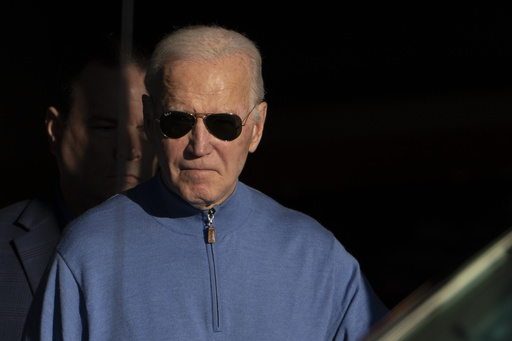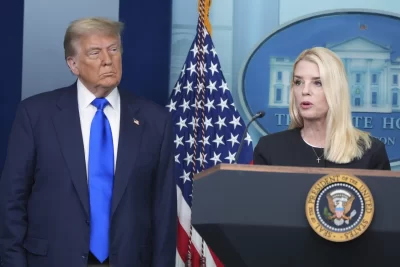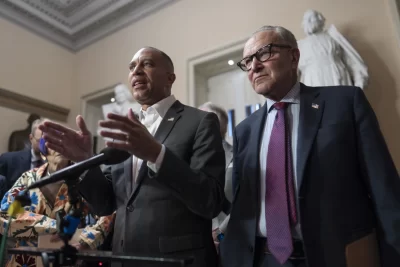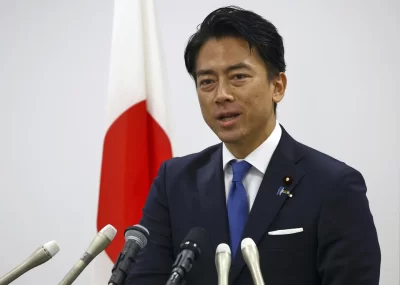
President Joe Biden says that achieving a cease-fire amid Israel’s war with Hamas “is not peace” and that an important key to lasting stability is a reunited Gaza Strip and West Bank that can be governed under “a revitalized Palestinian Authority.”
In an op-ed published Saturday in the Washington Post, Biden reiterated his position of recent weeks that a temporary halt to the fighting wasn’t a real possibility and wouldn’t ultimately advance greater U.S. objectives. The president and top U.S. officials have instead revived talk of working toward a two-state solution for the governance of Gaza.
Biden used the op-ed to offer more details on what the process of working toward that larger goal might look like.
He added, “The United States is prepared to take our own steps, including issuing visa bans against extremists attacking civilians in the West Bank.”
At least 11,400 Palestinians have been killed since the war began, according to the Health Ministry in Hamas-ruled Gaza, which does not differentiate between civilian and militant deaths.
Demonstrators calling for a cease-fire in Gaza have staged protests around the country, including clashing this week with police outside the headquarters of the Democratic National Committee. Former campaign staffers who helped elect Biden in 2020, as well as current members of his administration, have signed letters urging a cease-fire. In the op-ed, Biden explained why he opposes the idea.
“As long as Hamas clings to its ideology of destruction, a cease-fire is not peace,” he wrote. “To Hamas’ members, every cease-fire is time they exploit to rebuild their stockpile of rockets, reposition fighters and restart the killing by attacking innocents again.”
Biden also noted that “an outcome that leaves Hamas in control of Gaza would once more perpetuate its hate and deny Palestinian civilians the chance to build something better for themselves.”
The president further argued that working to achieve longer-range goals that can rise above the current unrest would ultimately make the United States more secure.
“We must never forget the lesson learned time and again throughout our history: Out of great tragedy and upheaval, enormous progress can come,” he wrote. “More hope. More freedom. Less rage. Less grievance. Less war. We must not lose our resolve to pursue those goals, because now is when clear vision, big ideas and political courage are needed most.”






